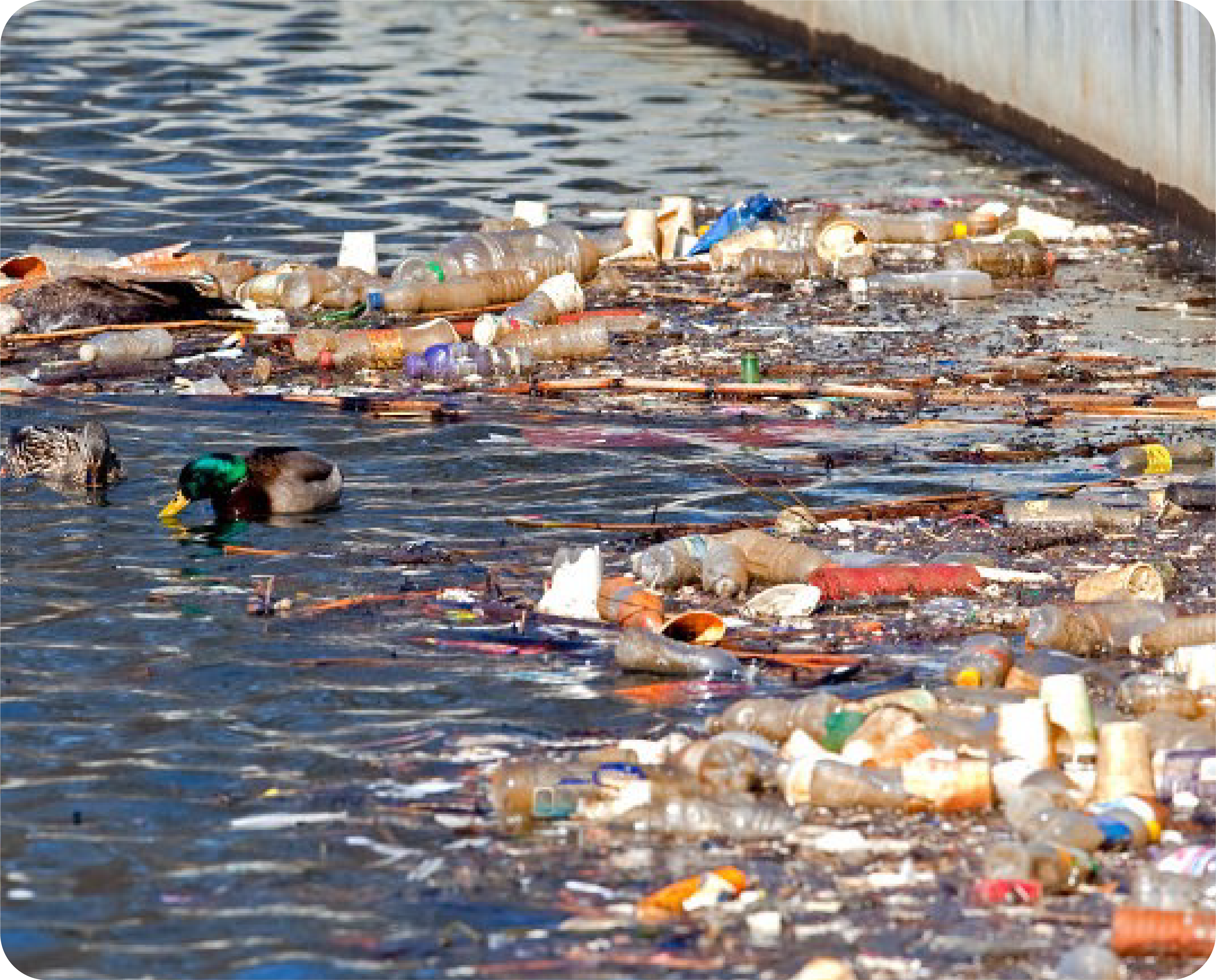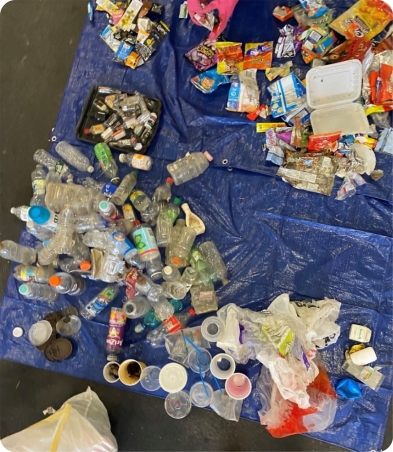Attorney General James Takes Historic Action Against PepsiCo for Endangering the Environment and Public Health With Plastic Pollution
Hundreds of PepsiCo Products Found Along Buffalo River, Jeopardizing the Environment and Public Health
AG James’ Lawsuit Charges PepsiCo with Harming the Public and Failing to Warn Consumers of Environmental and Health Threats of its Single-Use Plastic Packaging
NEW YORK – New York Attorney General Letitia James today filed a historic and groundbreaking lawsuit against PepsiCo Inc. (PepsiCo) for harming the public and the environment with its single-use plastic packaging. The Office of the Attorney General (OAG) found that single-use plastic produced by PepsiCo contributes significantly to high levels of plastic pollution along the Buffalo River, pollution that is contaminating drinking water and harming wildlife. The lawsuit alleges that PepsiCo substantially causes public harm in Buffalo, has failed to warn consumers about the potential health and environmental risks of its single-use plastic packaging, and misleads consumers and the public about its efforts to combat plastic pollution. Through this lawsuit, Attorney General James seeks to require PepsiCo to end practices that threaten the environment and the public and to obtain disgorgement, civil penalties, and restitution for the damage inflicted upon New York’s communities and environment.
“No company is too big to ensure that their products do not damage our environment and public health. All New Yorkers have a basic right to clean water, yet PepsiCo’s irresponsible packaging and marketing endanger Buffalo’s water supply, environment, and public health,” said Attorney General James. “No one should have to worry about plastics in their drinking water, plastic garbage littering their scenic riverfront, or plastic pollution harming wildlife. I will never hesitate to take on major corporations that put the health and safety of everyday New Yorkers and our planet at risk.”
PepsiCo’s Plastic Problem
PepsiCo, which is headquartered in New York state, manufactures, produces, and packages at least 85 different beverage brands and 25 snack food brands that predominantly come in single-use plastic containers. Plastic packaging has become a persistent and dangerous form of pollution along the shores of the Buffalo River and in its watershed. In 2022, OAG conducted a survey of all types of waste collected at 13 sites along the Buffalo River and its tributaries and found that PepsiCo’s single-use plastic packaging was the most significant. Of the 1,916 pieces of plastic trash collected with an identifiable brand, over 17 percent were produced by PepsiCo. PepsiCo’s plastic packaging far exceeded any other source of this identifiable plastic waste along the river, and it was three times more abundant than the next highest contributor.
From 2013 to 2022, approximately 78 percent of waste collected by Buffalo Niagara Waterkeeper volunteers in the Buffalo River watershed was plastic. Single-use plastic packaging for food and beverages, including food wrappers, plastic bottles, and bottle caps of the types produced by PepsiCo were found in significant amounts every year. Once in the environment, single-use plastic packaging quickly starts to break down and release dangerous microplastics.
A nationwide study by the non-governmental organization Break Free From Plastic aggregated 2,125,415 items of plastic waste from 2,373 separate collections across the United States from 2018 to 2022. In each year, the study documented PepsiCo as either the number one or number two producer of branded plastic trash collected across the United States. Large quantities of microplastics have been found in the Buffalo River, and an analysis of those fragments has confirmed the presence of microplastics from snack food wrappers and polymers of the type used in PepsiCo’s plastic beverage bottles and bottle caps.

Mallard ducks feeding in a mass of floating waste.

Plastic waste collected in April 2022 from the Erie Basin Marina in the City of Buffalo,
including Gatorade bottles and Lay’s potato chip packaging produced by PepsiCo.
Threats Posed by Plastic in the Environment
Plastic pollution along the Buffalo River poses wide-ranging public health and environmental threats. The city of Buffalo sources its drinking water from Lake Erie, less than a mile from the mouth of the Buffalo River, and microplastics have been detected in the city’s drinking water supply. Microplastics have also been detected in fish species that are known to inhabit Lake Erie and the Buffalo River, many of which are food sources for the local community. Humans consume microplastics that contaminate our food and water. Once ingested, microplastics permeate deep into our bodies, blood, and organs, and can even be transferred through the placenta into unborn children. Exposure to microplastics and the chemicals they carry can cause a wide range of adverse health effects, from reproductive dysfunction to inflammation of the intestine and neurotoxic effects.
In addition to negative effects on human health, research surrounding the impact of plastic and microplastic pollution shows negative impacts occurring on a wide range of species living in freshwater and terrestrial habitats due to exposure to various plastic polymers. Microplastics contaminate every level of the food web in the Great Lakes, and both plastic fragments and the chemicals they carry can bioaccumulate in freshwater species. At least 206 freshwater species have been found to ingest or become entangled in plastic, with many adverse and even lethal effects.
OAG Legal Claims
The lawsuit alleges that PepsiCo has significantly contributed to, and continues to contribute to, the existence of a public nuisance that injures the community living in the city of Buffalo and the environment. PepsiCo has also misled the public about the effectiveness of its plastic recycling and its efforts to combat plastic pollution. For example, PepsiCo’s statements have misled consumers and the public by creating the impression that the company was making meaningful progress toward reducing the use of non-recycled (virgin) plastic in its packaging, but no such progress is being made. On the contrary, for the last four years, PepsiCo’s use of virgin plastic has increased year by year. In 2022 alone, PepsiCo acknowledged that its use of virgin plastic in its plastic packaging increased by 11 percent. Attorney General James also charges that PepsiCo failed to warn its consumers about the risk of harm to human health and the environment posed by its packaging. PepsiCo’s failure to warn consumers and its misleading public statements violate New York General Business Law § 349 and New York Executive Law § 63(12).
Through this lawsuit, Attorney General James is asking the court to require PepsiCo to cease contributing to the public nuisance it is causing in the Buffalo region, remediate the contamination it caused, and identify and implement measures to reduce the quantity of PepsiCo’s plastic packaging entering the Buffalo River. The lawsuit further seeks to stop PepsiCo from selling or distributing any product in the Buffalo region in single-use plastic packaging that does not contain an adequate warning. The lawsuit also seeks disgorgement, civil penalties, and restitution.
“We must do everything in our power to protect our natural space and waterways so that they can be enjoyed by future generations,” said Erie County Executive Mark C. Poloncarz. “Single-use plastic packaging has caused major problems for our environment and the chain of life in and around the Great Lakes, including our beloved Lake Erie. Taking action against those who pollute our environment is the only way to confront the serious challenges facing our community as a whole. I applaud Attorney General James for leading the way for New York state so that we can protect all of our residents, and I join her commitment to preserving and maintaining healthy waterways.”
“We’re the city of good neighbors,” said Buffalo Mayor Byron W. Brown. “We not only strive to be good to each other, but we want to be good to the environment around us. I thank Attorney General James for taking bold actions to protect our environment against threats. I also thank her for her partnership in my administration’s goal to create a greener and climate friendly city.”
“Thank you, Attorney General James, for always standing up for what is right,” said State Senator Tim Kennedy. “By filing this lawsuit to hold PepsiCo accountable for the environmental damage they have caused, the Attorney General is once again prioritizing the people and natural resources of Western New York. Waste like PepsiCo's plastic packaging has contaminated our drinking water and harmed our wildlife. We must prioritize stopping pollution at all costs to keep Buffalo and Western New York safe.”
“Plastic trash is unsightly, but more importantly it is an environmental detriment — it negatively impacts wildlife, does not biodegrade in landfills, and contaminates our drinking water and ecosystems,” said Assembly Majority Leader Crystal Peoples-Stokes. “I applaud Attorney General James for pursuing the most persistent violators in the name of protecting our environment.”
“Today, we are telling PepsiCo a simple message: Western New York is not a dumping ground,” said Assemblymember Jon D. Rivera. “We have made great strides in protecting and cleaning up local waterways, and we’re moving on from our industrial past to a new, blue economy so that residents can enjoy places like the Buffalo River for generations to come. However, we can’t remediate the environment without acknowledging the negligence of large corporations that continue to place profits above people. PepsiCo must play a role in environmental cleanup due to the products they create, which contribute to plastic pollution, CO2 emissions, and single-use waste. My district boasts one of the largest shorelines along a body of water in New York, and I know how much the local watershed plays a role in the health of both individuals and the entire region. I thank Attorney General Letitia James and her office for standing up for Western New York, and for pushing for PepsiCo to pay for the damage it has done to the community.”
“Our Buffalo community fought for over 50 years to secure hundreds of millions of dollars to clean up toxic pollution, improve habitat, and restore communities around the Buffalo River,” said Jill Jedlicka, Executive Director of Buffalo Niagara Waterkeeper. “As a Great Lakes city that has been oppressed for too long by the environmental damage left from our industrial hangover, we will not sit idly by as our waterways become polluted again, this time from ever-growing single-use plastic pollution. Buffalo Niagara Waterkeeper has coordinated annual shoreline sweeps for over 20 years, and single-use plastic bottles and wrappers constitute the majority of the items we collect. We are pleased to be able to contribute citizen science data to the actions taken by the New York State Attorney General, and we applaud her for holding producers accountable for this relentless assault on our environment and local waterways.”
This matter is being handled by Assistant Attorney General Jennifer C. Simon with Environmental Scientists Jennifer Nalbone and D Pei Wu, under the supervision of Affirmative Section Chief Morgan Costello and Bureau Chief Lemuel M. Srolovic, with the assistance of science interns Leah Bargnesi, Mackenzie Huber, and Hannah Rauh. The Environmental Protection Bureau is a part of the Division for Social Justice, which is led by Chief Deputy Attorney General Meghan Faux and overseen by First Deputy Attorney General Jennifer Levy.
